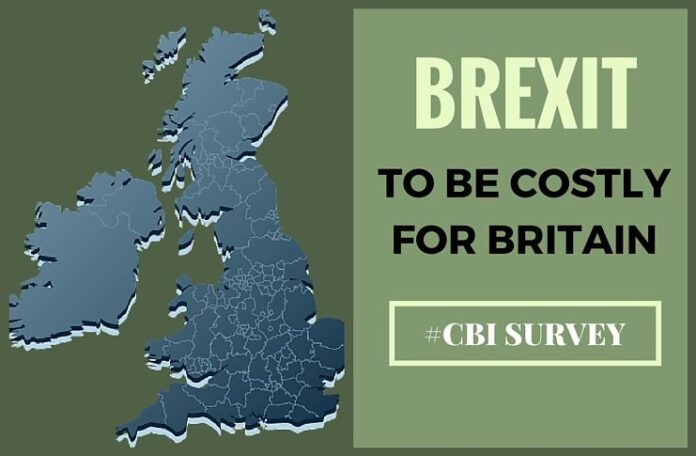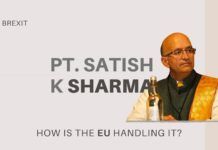
Brexit would be more costly than remaining EU’s
[dropcap color=”#008040″ boxed=”yes” boxed_radius=”8px” class=”” id=””]A[/dropcap]ccording to a survey released Monday by the Confederation of British Industry (CBI), than other countries in the European Union (EU) Brexit would be more costly.
Xinhua reported, after the referendum on June 23 on whether to stay in the EU or leave the bloc. The commissioned professional services firm PricewaterhouseCoopers (PwC) to model two scenarios for Brexit, the CBI representing businesses employing one third of the British workforce.
The two contrasting scenarios were intended to “capture this uncertainty,” and “particularly in terms of future trading relationships,” which was more uncertainty outside the EU. Said PwC in its report
“When the trade conducted under current World Trade Organisation (WTO) rules the pessimistic scenario modeled and in the past five years when Britain’s achieved a free trade agreement with the EU then the optimistic scenario rested
Under the optimistic scenario, Britain’s GDP would be three percent lower in 2020 than what it would be if there was no Brexit, a reduction of 55 billion pounds ($79 billion) at 2015 prices, while under the pessimistic scenario, the economy would be 5.5 percent smaller, a reduction of 100 billion pounds at 2015 prices.
[dropcap color=”#008040″ boxed=”yes” boxed_radius=”8px” class=”” id=””]I[/dropcap]n the longer term, the disruptive effects of an exit would lessen, with GDP forecast to be between 1.2 percent and 3.5 percent smaller under the optimistic and pessimistic scenarios respectively, a cost of between 25 billion pounds and 65 billion pounds.
Carolyn Fairbairn, director general of the CBI, said at the unveiling of the report at the London Business School, that savings from reduced EU budget contributions and regulation would be “greatly outweighed by the negative impact on trade and investment.”
She added: “Without a free trade deal, 90 percent of British exports to the EU, by value, could face tariffs. Some sectors could be hit particularly hard. Under WTO rules, British textile exports to the EU could face tariffs of nearly 10 percent. Transport equipment could face tariffs of about seven percent.”
Pros and Cons of Brexit
Here is an excellent post.
Notes:
1. IANS
- உள்ள பணம் போகிறது - November 29, 2016
- Chinese premier meets U.S. bigwigs on bilateral ties, common concerns - September 22, 2016
- Cyber Security app for Senior Management executives by KPMG - April 2, 2016










